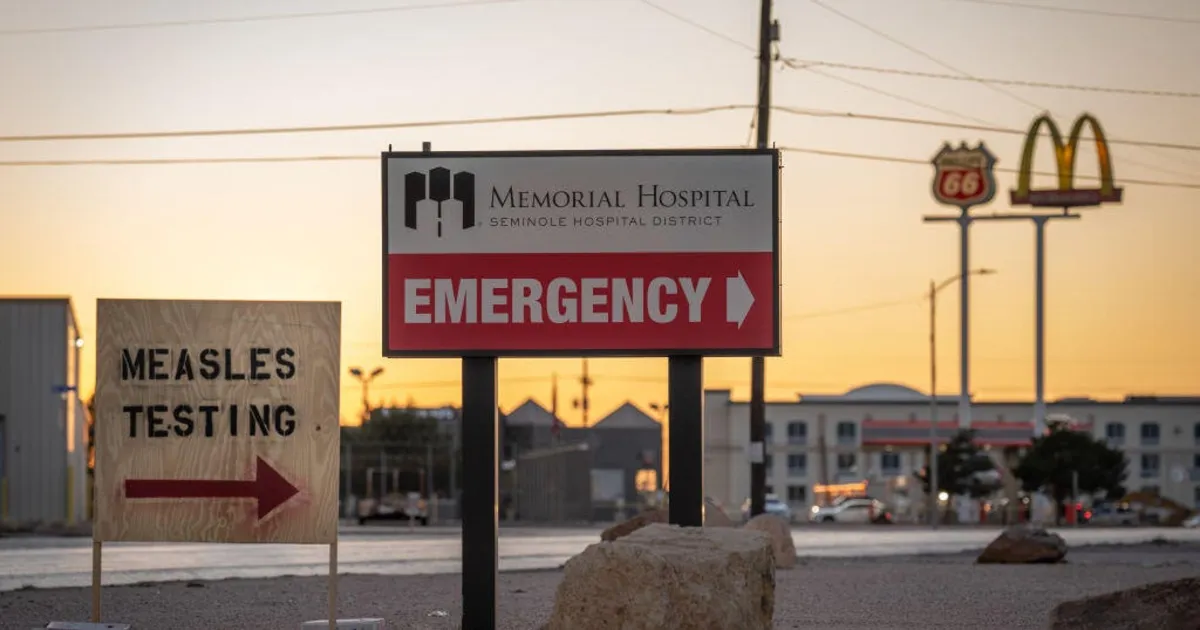
In early 2023, Texas faced a significant measles outbreak that soon escalated into the worst the United States had seen in over three decades. An investigation by KFF Health News reveals that actions taken by the Trump administration resulted in fear and confusion among CDC scientists, severely hindering their ability to respond effectively during this critical time. The outbreak, which spread rapidly, highlighted the dangers posed by declining vaccination rates and misinformation.
Just one month after Donald Trump assumed office, his administration began to interfere with CDC communications. Reports indicate that the administration stalled the agency's reports, censored critical data, and laid off vital staff members. This chaos left CDC experts feeling restrained and unable to collaborate openly with local public health workers. Katherine Wells, the public health director in Lubbock, Texas, expressed her frustrations in a February 5 email stating, "My staff feels like we are out here all alone." Tragically, a child would die before CDC scientists made contact with Wells.
As measles spreads rapidly in undervaccinated communities, delays in response can have catastrophic consequences. Researchers estimate that if a person with measles is in the same room as ten unvaccinated individuals, nine will likely become infected. This exponential growth can quickly overwhelm public health resources. The situation in West Texas serves as a stark reminder of the dangers faced as vaccination rates continue to decline, misinformation proliferates, and public health budgets dwindle.
While the Trump administration stifled CDC communications, health secretary Robert F. Kennedy Jr. further fueled public doubt in vaccines, promoting unproven treatments like vitamins to combat disease. The outbreak spread beyond Texas, affecting New Mexico, Oklahoma, Kansas, Colorado, and even Mexico's Chihuahua state, resulting in over 4,500 reported cases and at least 16 deaths. Jennifer Nuzzo, director of the Pandemic Center at Brown University, remarked, "When you're battling contagious diseases, time is everything."
As the situation deteriorated, Wells was increasingly anxious about unvaccinated children hospitalized with measles. Despite hospitals being legally obligated to report cases to the CDC, Wells feared many children were not getting tested. She relayed alarming information about school absenteeism, with reports of sick children showing symptoms as early as November. In her attempts to connect with CDC experts for guidance, she found herself playing a frustrating game of telephone.
With the CDC largely unresponsive, local officials turned to external organizations like the Immunization Partnership for guidance. Despite the formal freeze on federal communications being lifted on February 1, CDC scientists felt unable to communicate freely for weeks afterward. Georges Benjamin, executive director of the American Public Health Association, noted that public health organizations struggled to reach program staff during this chaotic period.
In the impacted regions, particularly within close-knit Mennonite communities, local health officials found it challenging to engage with residents. Many individuals were hesitant to seek medical care or cooperate with health departments due to historical mistrust of authorities and a reliance on home remedies. Zach Holbrooks, the health district's executive director, highlighted the difficulties in persuading residents to get vaccinated or to name their contacts.
The situation in Gaines County, Texas, is not unique. Measles outbreaks have historically taken root in undervaccinated communities, necessitating significant public health efforts to combat misinformation and overcome barriers. For instance, a similar outbreak in Clark County, Washington, in 2018 saw hundreds of public health officials actively engaging with the community to contain the virus.
The response to measles in West Texas faced a critical turning point when a 6-year-old child tragically died on February 26, prompting the CDC to finally issue a notice about the outbreak. However, the notice raised concerns among public health specialists due to its promotion of vitamin A as a treatment, which led to further complications and misinformation. Local health officials worried that parents were delaying medical care in favor of administering supplements at home.
Despite national attention following the first measles death in a decade, the situation in West Texas remained overwhelming. Local hospitals struggled to cope with the influx of patients, and urgent requests for additional resources went unaddressed. As cases continued to rise, the outbreak eventually spilled over into Mexico, leading to a widespread crisis in Chihuahua state.
As the West Texas outbreak was declared over in August, the consequences of this public health catastrophe are likely to linger. Experts warn that declining vaccination rates and rampant misinformation will continue to fuel future outbreaks. It is imperative for public health agencies to remain vigilant and proactive in combating misinformation and ensuring communities are informed about the importance of vaccinations.